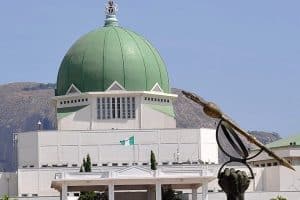E
Enioluwa Adeniyi
Guest

After more than two months of recess, Nigerian senators and members of the House of Representatives have returned to Abuja to resume full legislative activities.
The federal lawmakers had embarked on recess on July 23 and were scheduled to return on September 17; however, they extended their break by an additional week.
During their absence, several urgent national issues emerged, warranting immediate attention and response from the legislators. Many of these matters directly impact their constituents and have been the subject of public discourse nationwide.
As the 469 federal legislators reconvene today, they are expected to prioritize these pressing concerns, engaging in discussions that could shape policies and decisions affecting millions of Nigerians.
The resumption comes at a critical time, as the country faces various challenges that require legislative input and action.
According to Premium Times, here are some of the key issues:
Petrol Prices
When lawmakers left Abuja in July, a litre of petrol was sold for ₦617 per litre at NNPC retail outlets. The price has risen to ₦898 per litre at the same outlets. In many other major fuel stations in Abuja, petrol is being sold at ₦940 per litre.
In many constituencies, petrol costs as much as ₦1,000. Many Nigerians are concerned that the Dangote Refinery, a local refinery, is reportedly selling petrol at a price higher than imported products—a development that has dashed the hopes of many who believed local refining would reduce costs.
Most Nigerians would expect their lawmakers to deliberate on this high energy cost, driving up the prices of most commodities. There is a strong possibility that the issue of petrol prices will be raised, perhaps through a motion, as the House has been deeply involved in similar matters.
The lawmakers made several interventions during the standoff between the Dangote Refinery and downstream regulators. During the recess, opposition lawmakers issued a statement calling for a review of the pricing of petrol.
However, motions and resolutions of the National Assembly on most policy issues have not resulted in significant changes. In the downstream sector alone, the House has several committees conducting different probes, with little to show for it.
The Joint Committee on Petroleum and Gas was disbanded by Speaker Abbas Tajudeen over some controversial moves that divided the lawmakers. That committee was probing the controversial acquisition of NNPC Retail by OVH and the dispute between NMDRA and the Dangote Refinery.
Even when resolutions are made, they are often ignored by the executive. Just before the lawmakers went on recess, there was a resolution urging the executive to reverse the Band A electricity tariff. However, the tariff regime remains in place.
The lawmakers may consider the reinstatement of the petroleum subsidy, possibly by calling on President Bola Tinubu to present a supplementary budget or waiting for the 2025 budget.
Flood
Last week, the House announced a donation of N100 million to the victims of the Maiduguri flood and sent a delegation to commiserate with the people of Borno State.
Similarly, Aliyu Betara, a member of the state, also donated ₦100 million. However, the people of Borno and other states suffering from floods and other preventable disasters may expect more from the lawmakers than just donations and visits.
In recent years, lawmakers have reduced their legislative responses to performative outrage through motions and resolutions that seldom yield results.
Regarding the Maiduguri flood, many are asking: what happened? How did it happen? Why did it happen? Who is responsible? These are questions that lawmakers can get answers to through proper investigations. But the real question is, can the lawmakers deliver in a timely manner and hold those responsible accountable in the event of established negligence?
Presidential Jet
President Tinubu has been travelling around the world on the presidential jet. However, many Nigerians are asking if the National Assembly appropriated funds for the procurement of the luxurious jet.
Premium Times reported that the House Committee on National Security and Intelligence recommended the purchase, and the House adopted the recommendations. However, it is unclear if lawmakers have made budgetary provisions for the plane.
Now that the lawmakers are back, Nigerians would expect their representatives to provide answers on this matter.
MTEF and Finance Bill
Since his inauguration in May 2023, President Tinubu has struggled to establish a clear financial roadmap for the country.
Currently, the federal government operates three separate budgets, two of which are from the 2023 fiscal year. By September, the president is expected to submit a new Medium Term Expenditure Framework (MTEF) and Fiscal Strategy Paper for the 2025–2027 rolling plan.
These legislations form the skeletal structure for the 2025 budget. Besides this, it is expected that the president may be planning to send a finance bill to the parliament to incorporate some of the recommendations of the Taiwo Oyedele Fiscal Reform Committee.
Some of these recommendations may involve adjustments to existing tax rates, a topic many Nigerians are not keen to discuss.
Constitution Review
The House spokesperson, Akin Rotimi, released a statement on Monday outlining the priorities of the House upon resumption, with constitutional reform listed as one of the key issues, alongside the budget.
The Constitution Review Committee, led by Deputy Speaker Ben Kalu, has less than three years to complete the process. However, by 2026, campaign activities for the 2027 general election would have begun, making any meaningful constitutional amendments difficult to achieve.
The post Petrol Prices, Constitution Amendment, Floods May Top Discussion As NASS Resumes appeared first on Naija News.
